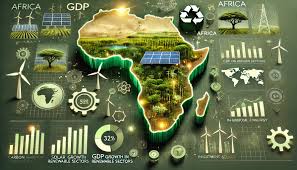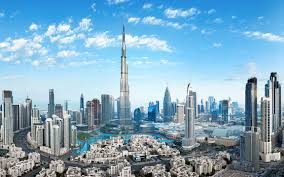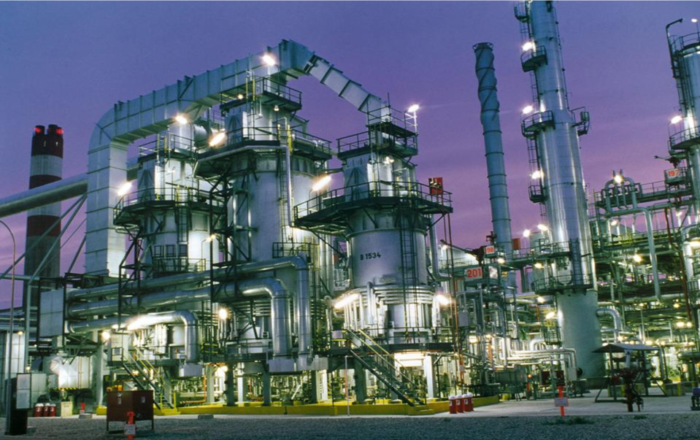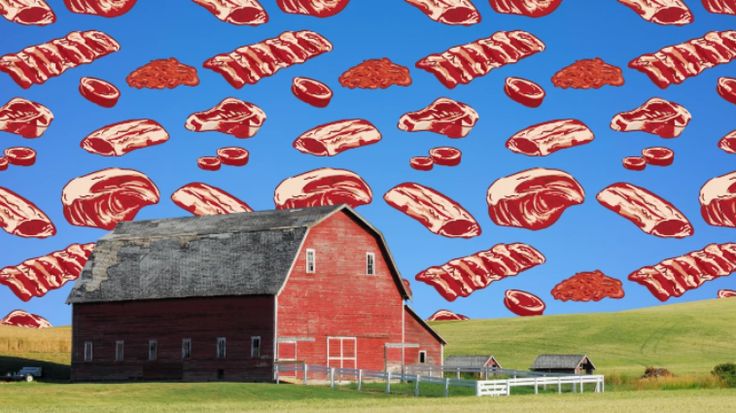How Africa's Economic Resilience and Innovation are Redefining Global Power

For decades, the story of Africa's economy has been told through a single, often negative lens.It's a narrative dominated by headlines of debt, political instability, and a seemingly endless cycle of commodity dependence.
While these challenges are very real and continue to persist, they don't capture the full picture of a continent in dynamic transition. A "new scramble" is indeed underway, but this time it's not for colonial control; it's a race by African nations to define their own economic destiny.
They are leveraging their unique strengths a youthful population, vast natural resources, and a rapidly evolving digital ecosystem to build a more resilient and self-reliant future. This is a story of economic resilience and homegrown innovation that's redefining Africa's role in the global economy.
The AfCFTA: A Continental Game-Changer
Source: Google
One of the most ambitious and transformative initiatives driving this change is the African Continental Free Trade Area (AfCFTA). Launched in 2021, the AfCFTA aims to create a single market of over 1.3 billion people with a combined GDP of $3.4 trillion
Its core objective is to dismantle trade barriers eliminating tariffs on 90% of goodsand reducing non-tariff barriers to dramatically boost intra-African trade.
Historically, intra-African trade has lagged far behind other regions, accounting for only about 15% of the continent's total trade, compared to 67% in Europe and 59% in Asia. The AfCFTA is designed to change this by harmonizing trade policies and simplifying customs procedures, allowing African nations to trade more goods and services with each other.
This is crucial for two reasons. First, it creates a much-needed buffer against global economic shocks and reduces reliance on external markets. Second, it stimulates industrialization by encouraging countries to produce and export value-added goods rather than just raw materials.
For example, a country rich in a natural resource like cocoa can now process it into finished goods like chocolate, which can then be exported duty-free to a massive continental market. This model, known as commodity-based industrialization, creates jobs, retains wealth, and builds more resilient economies.
The AfCFTA's success is not without its challenges, notably poor infrastructure and non-tariff barriers, but its potential to unlock new value chains and foster regional collaboration is undeniable.
Technology: Leapfrogging Traditional Development
Source: Goggle
Technology is a powerful accelerator in Africa's economic transformation, enabling countries to bypass traditional development stages. This digital revolution is most visible in the rise of the fintech sector.
Mobile money services like M-Pesa in Kenya have revolutionized financial inclusion, giving millions of people access to banking services without a physical bank account. This has unlocked new avenues for small businesses, facilitated cross-border transactions, and fostered a culture of digital entrepreneurship.
But the impact of technology extends far beyond finance. In agriculture, a sector that employs a majority of the continent's population, agritech innovations are improving yields and efficiency.
Digital platforms connect smallholder farmers to markets, provide real-time weather data, and offer access to innovative financing. This helps to modernize a critical economic sector and increase food security.
Furthermore, the rise of tech hubs and startup ecosystems in cities like Lagos, Nairobi, and Cape Town is creating entirely new economic sectors. These hubs are a breeding ground for homegrown solutions that address uniquely African challenges, from e-commerce platforms like Jumia to logistics startups that are building the infrastructure for a connected continent. Technology is not just a tool for development; it's a force for innovation that is being driven by the continent's own young, tech-savvy population.
Diversification and Value Addition Beyond Raw Materials
Source: Google
Africa's vast natural resource wealth has long been a source of both opportunity and vulnerability. For decades, many African nations have been caught in a cycle of exporting raw, unprocessed materials from crude oil to cobalt and then importing expensive finished goods.
This legacy model has made economies vulnerable to volatile global commodity prices and has stifled local industrial growth.
However, a new strategy is taking hold. African countries are increasingly focused on diversifying their economies and adding value to their resources before export. This is particularly relevant in the context of the global green transition.
Africa holds significant reserves of minerals like cobalt and manganese, which are crucial for the production of electric vehicle batteries and renewable energy technologies. The new approach is to not just mine and export these minerals but to develop local processing facilities and, eventually, manufacturing capabilities.
For example, the Democratic Republic of Congo and Zambia, major producers of cobalt, are exploring ways to move up the value chain by refining and processing the mineral domestically.
Botswana has made significant strides by developing its own diamond-cutting and polishing industry , ensuring more of the value stays within the country. This strategy is not only about economic growth but also about creating a more equitable share of the wealth generated by Africa's resources. It's a fundamental shift from being a supplier of raw materials to becoming a strategic partner in the global supply chain for a green future.
Tackling Persistent Challenges: Debt and Infrastructure
Despite the progress, significant hurdles remain. A key challenge is the high level of debt burden, which consumes a large portion of national budgets that could otherwise be invested in development.
African governments and financial institutions are working to address this through various means, including advocating for debt restructuring and seeking more concessional, long-term financing.
Equally pressing is the continent's significant infrastructure deficit. A lack of adequate roads, rail networks, power grids, and digital connectivity remains a major barrier to intra-African trade and economic competitiveness.
The estimated infrastructure investment gap is over $100 billion per year. To bridge this, African governments are increasingly turning to Public-Private Partnerships (PPPs) to attract investment from the private sector.
By creating a more stable and attractive investment climate through legal reforms, risk-sharing mechanisms, and transparent governance they aim to mobilize the capital needed to build the infrastructure that will power the continent's future.
This holistic approach combining continental integration, technological innovation, economic diversification, and strategic infrastructure investment is the engine of a new African economic narrative.
It's a narrative not of a continent waiting to be saved, but of one actively charting its own course, transforming its challenges into opportunities, and redefining its role in the global economy for generations to come.
Recommended Articles
The Hidden Hand of External Influence in National Sovereignty

Beyond military power, how do economic, political, and cultural forces from external actors shape a country's destiny? T...
The Post-Pandemic Real Estate Market

The real estate market is undergoing a profound transformation. This article explores how technology, remote work, and d...
Navigating a Future Beyond the Barrel

The petroleum sector is at a crossroads, balancing global energy demands with the urgent need for climate action. We exp...
The Global Economy at a Crossroads: Navigating Uncertainty and Opportunity

Description: From geopolitical shifts to technological disruption, the global economy faces unprecedented challenges and...
How Hard Economies Build Stronger People and Communities

Beyond the headlines of economic downturns, this article explores the hidden strength, innovation, and community spirit ...
You may also like...
7 Ways to Network Without Feeling Fake

Discover 7 practical ways to network authentically without feeling fake. Build genuine relationships, add value, and cre...
When Meat Fell From the Sky: The Bizarre Story of the Kentucky Meat Shower of 1876

On March 3, 1876, Bath County, Kentucky, witnessed one of history’s strangest events: a shower of raw meat falling from ...
Cleanliness, Colour, and Contradictions: How Racism Warps the Hygiene Debate Between Black and White

A deep dive into the cultural clash over hygiene between Black and white communities, exposing how racism has long disto...
How Social Media's Grip on African Youth is Fueling a Silent Anxiety Crisis

Social media is more than a tool for connection; for a new generation of African teens, it's a source of anxiety, body i...
How Africa's Economic Resilience and Innovation are Redefining Global Power

Africa is projected to be the world's second-fastest-growing region, but what's driving this? This article goes beyond t...
Confronting Africa's Mental Health Crisis

Mental health issues are a growing, yet overlooked, crisis in Africa. This article explores the cultural, economic, and ...
Nottingham Forest Sack Nuno, Appoint Ange Postecoglou in Bold Tactical Shift

Nottingham Forest has appointed Ange Postecoglou as its new manager, replacing Nuno Espirito Santo. This move signals a ...
World Cup Heartbreak: Super Eagles' Qualification Hopes Dented by South Africa Draw

The critical 2026 FIFA World Cup qualifier between South Africa and Nigeria ended in a 1-1 draw, jeopardizing Nigeria's ...